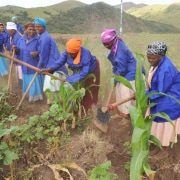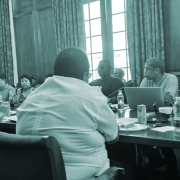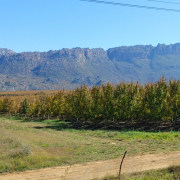|
Getting your Trinity Audio player ready...
|
Corruption Watch (CW) on Friday 16 May 2025 sent a letter of complaint to the Public Protector on the failure of Farm Worker Equity Schemes (FWES) and their effective implementation.
FWES are a government initiative intended to economically empower farm workers by giving them equity in existing farming enterprises and incorporating them into agribusinesses as a means of social upliftment and redress. The project was started soon after the change to a democratic government, but over the course of some 30 years has produced very little in the way of benefits for those it was intended to uplift.
“The FWES programme was intended to be a transformation initiative,” says CW senior researcher and project lead Melusi Ncala, “but it was hijacked by government officials and commercial interests who, when presented with the opportunity in the early days of our democracy, chose instead to lie, cheat, and steal from the most vulnerable members of our society.”
The letter to the Public Protector, therefore, is a continuation of efforts between CW and its partners – the Surplus People Project and the Legal Resources Centre – who have been at the forefront of farm worker struggles in relation to FWES for the better part of a decade.
Over the years CW has received various reports from community-based organisations about the failure of FWES to achieve their objective – which is to contribute to land reform. These reports align with the organisational objective to fight the rising tide of corruption and the abuse of public funds, particularly for private gain, and to promote transparency and accountability to protect the beneficiaries of public goods and services.
Fighting land corruption
The importance of land issues, and particularly the link to corruption and maladministration, has been a critical focus area for CW through its work with Transparency International’s Land and Corruption in Africa project which tackles land corruption risks and injustices in sub-Saharan Africa. The organisation completed phase one of the project between 2015 and 2019, and is winding up phase two of the project, which started in 2021 and will finish this year.
CW’s body of work in this area includes two research reports (2019 and 2023) and a five-part podcast series, the latter compiled from information and voice recordings of affected community members, government representatives, and farmers, all collected during the team’s research field trip to the Western Cape in 2023.
For this second phase of its work the organisation also drew from a review commissioned by the (then) Department of Agriculture, Land Reform and Rural Development (DALRRD) and carried out by ZALO Capital, which presented its report to the DALRRD in 2013. Since then, the report has all but disappeared because the department swiftly smothered it. The report exposes a grim situation of financial irregularities, mismanagement, improper accounting practices, and other forms of possible malfeasance.
“It is deeply ironic that the country now finds itself targeted by a treacherous disinformation campaign, about imaginary ‘land confiscations’ and ‘mass killings’,” comments Ncala, “while farm workers continue to be abused, displaced, and dispossessed of everything they have, including their land. This is the true reflection of the state of our society.”
The failure of these schemes to achieve equity have centred on common issues that emerged under the DALRRD, and which prompted the letter. These include:
- An abuse of power and an undue delay in resolving the complaints of the beneficiaries;
- Maladministration of FWES and the disbursement process;
- Dishonesty or improper dealing with respect to public money;
- The outstanding grant payments in terms of the FWES;
- The lack of information, especially with respect to the financial affairs of the FWES such as shareholding and the dividends due, and paid out, to beneficiaries;
- The chronic lack of information provided to beneficiaries in relation to the respective trusts and other corporate vehicles; and
- The lack of oversight and regulation by the DALRRD.
Despite engaging in writing and in person with the DALRRD since 2019, CW and its partners have not seen any substantive progress. In light of the Public Protector’s empowerment under section 182 of the Constitution to investigate, report, and remedy improper conduct in state affairs, CW has requested in its letter that the Public Protector investigate the FWES and make an appropriate recommendation for remedial action.
Ncala expresses his views on the FWES in the 2023 opinion piece, Farm worker equity schemes a failure of both government and farm owners.
“It is high time that the institutions tasked with protecting marginalised communities step in and act decisively, especially in the face of clear criminality and corruption,” he concludes.
For media enquiries contact:
Oteng Makgotlwe
Cell: 076 473 8336 E-mail: OtengM@corruptionwatch.org.za
Jean-Andre Deenik
Cell: 083 375 5044 E-mail: jeanandre@lrc.org.za






